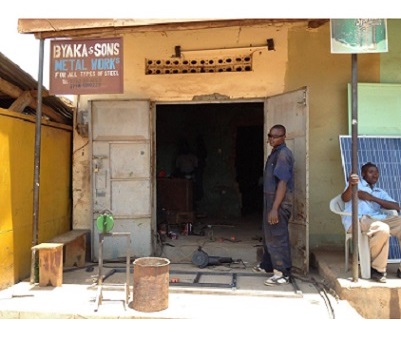This project builds on an existing large-scale randomized control trial designed to identify the constraints to expansion faced by SMEs. Two programmes are currently being evaluated in Uganda: the first is a set of different interventions aiming to ease input constraints on SMEs, and the second is a vocational training scheme designed to improve the labour market outcomes of young people, which the research team is also using to study the matching process between recently skilled workers and SMEs. The team will use their PEDL grant to extend this study to measure the spill-over effects of these programmes on firms that are socially connected to, share resources and inputs with, or are product market competitors to directly treated firms.
In order to estimate spill-overs of the interventions on treated firms’ social, business and market networks, the researchers will survey firms that are not assigned to any of the programmes (or to the control group). These firms will be linked to the treatment and control firms in one of three ways:
- they might be identified by the treatment and control firms to be in their "social network", in the sense that the owners and/or employees report being socially tied to each other (through kinship or friendship);
- they might be in their business network, so that through some informal arrangement they might share information about potential workers, or share resources such as machinery, tools, or financial capital;
- they might be identified from the census (previously collected by the team) as competitor firms in the output market or rivals in input markets: such firms are likely to be located close to the directly treated firms and those in the control group.
The conclusions from this study will help identify whether policies designed to ease constraints to SME expansion create social multipliers by changing outcomes for other firms that are connected in some way to the originally treated firm. The social benefits might be positive if they enable linked firms to better collaborate and share resources as one of them becomes better off. Alternatively, the mere anticipation that some of the gains from SME expansion will have to be shared with others - perhaps entrepreneurs in the same kinship group - might alter the way in which additional resources provided by the treatments are used, or taken-up. The social benefits of easing constraints on SMEs expansion might be zero or even negative if the gains to the directly treated firm are offset by losses to competitor firms, who might respond by reducing their operating scale, relocating, or closing down altogether.
The overall value of programmes aiding SME expansion can only be properly evaluated by taking into account all these potential indirect spill-over impacts operating through the network ties between firms, and the market structure of output and input markets that SMEs operate in. Since current evidence on this research question is relatively scarce, this project is expected to both make a significant contribution to the academic literature and yield valuable conclusions for SME expansion policies.










